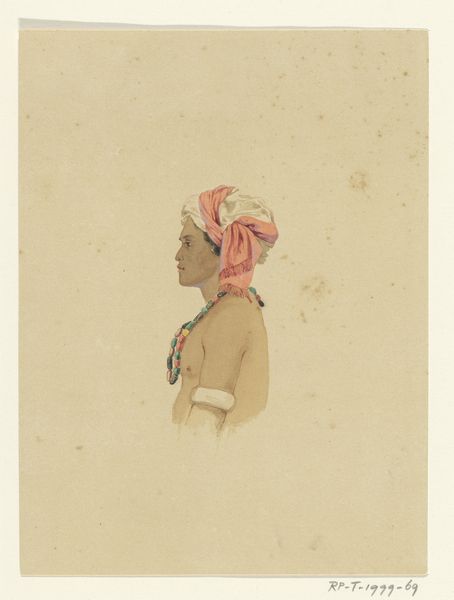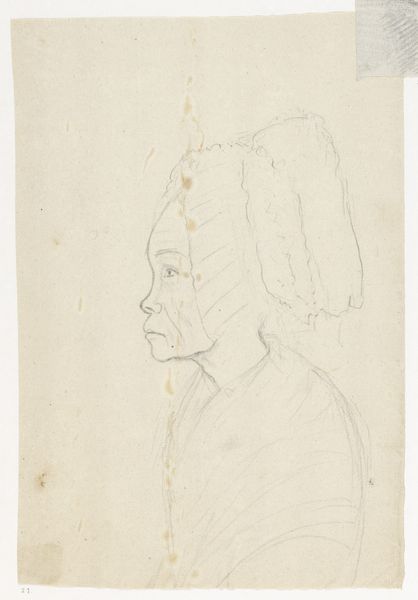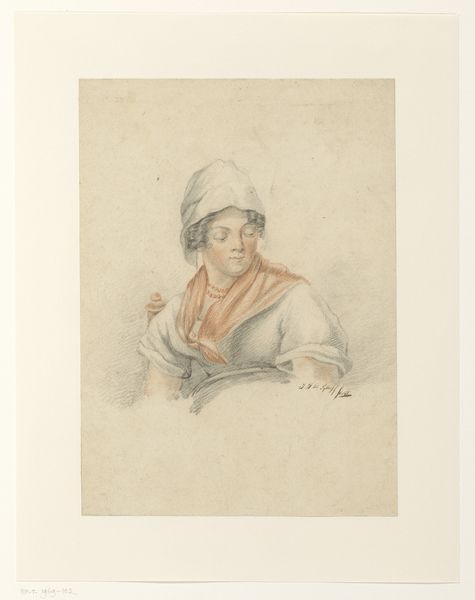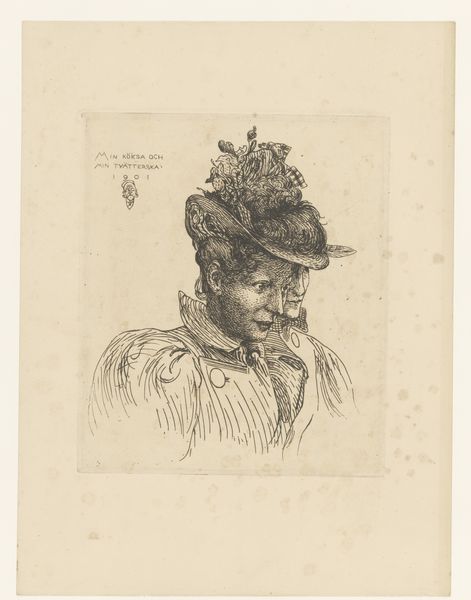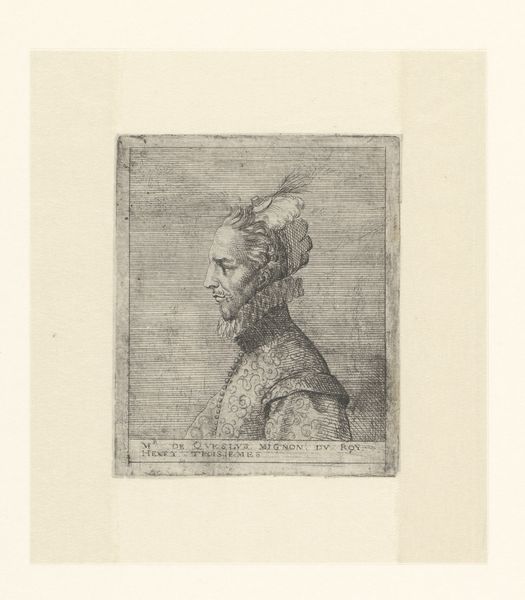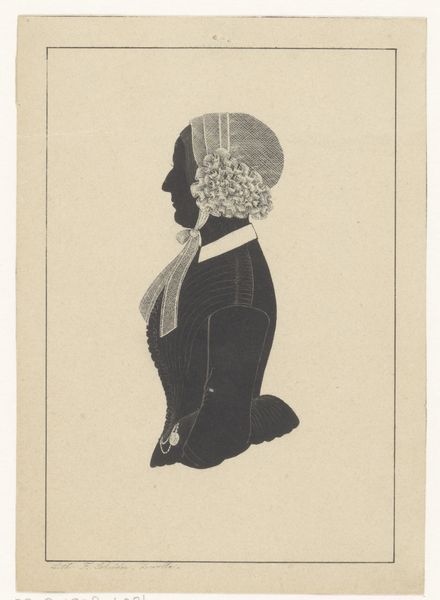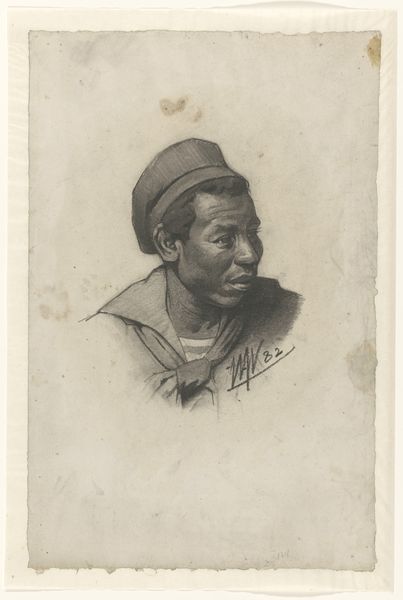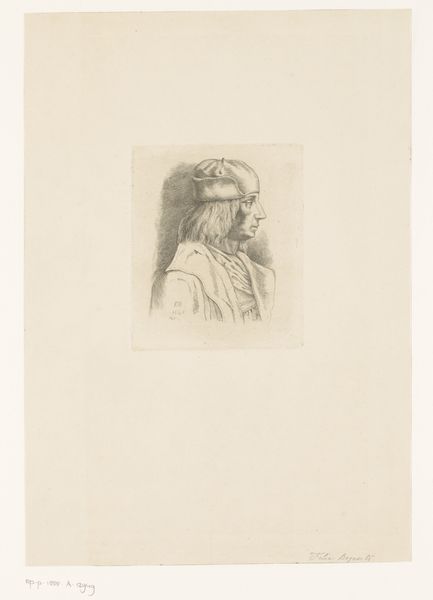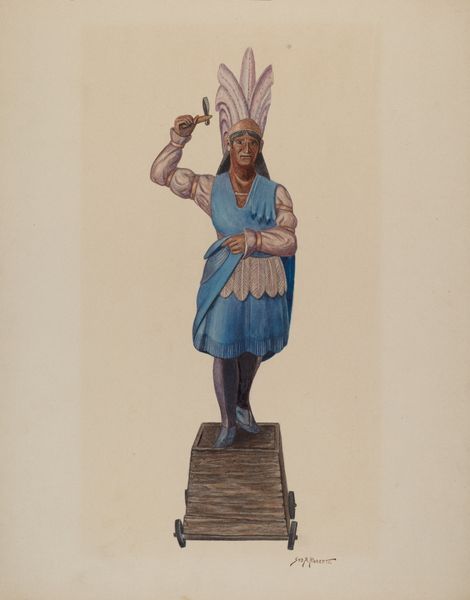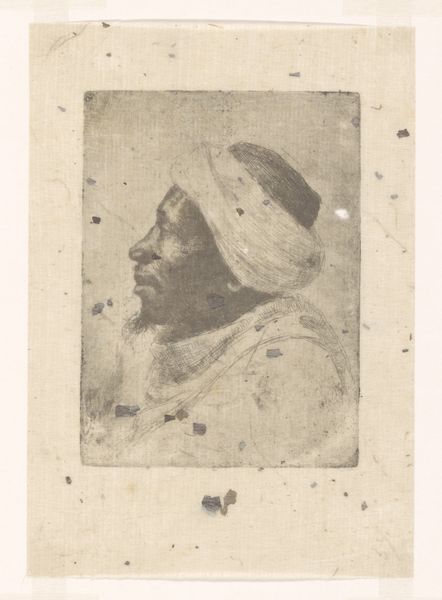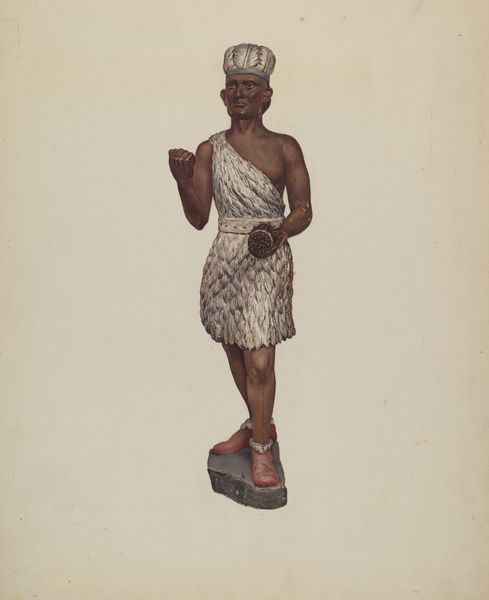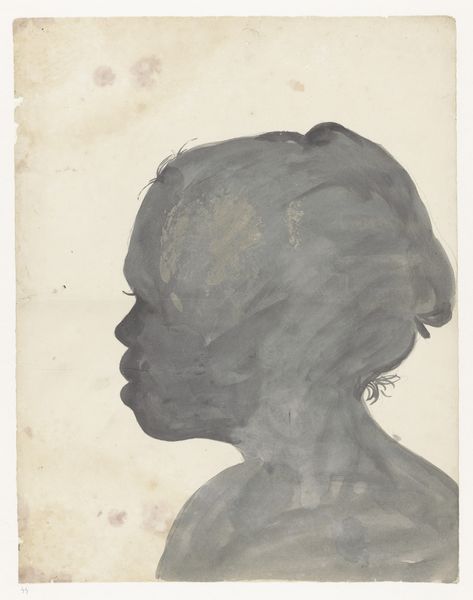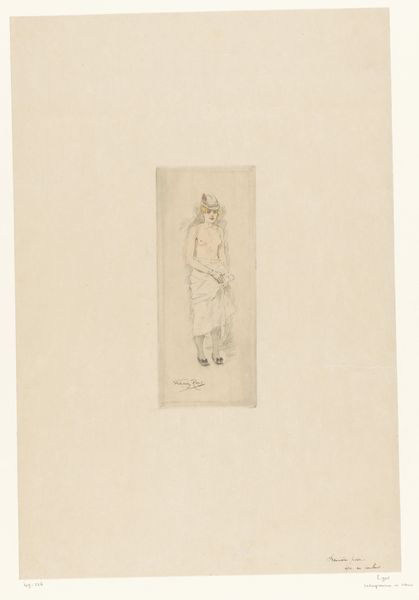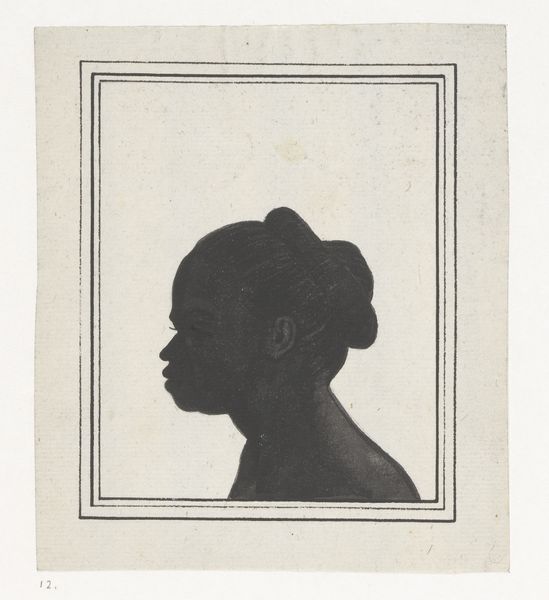
Portret van een Timorees van Kupang, in profiel c. 1837 - 1854
0:00
0:00
ernestalfredhardouin
Rijksmuseum
drawing, watercolor
#
portrait
#
drawing
#
asian-art
#
watercolor
#
realism
Dimensions: height 205 mm, width 153 mm
Copyright: Rijks Museum: Open Domain
Editor: So, this is "Portret van een Timorees van Kupang, in profiel" which translates to "Portrait of a Timorese man from Kupang, in profile," by Ernest Alfred Hardouin, dating from around 1837 to 1854. It’s a watercolor and pencil drawing. The details in the headwrap and earring are just amazing! What do you notice about it? Curator: Immediately, I think about the materials used and what they tell us. Watercolour was easily portable. Combine that with pencil, and we are probably looking at documentation by someone on the move. The "realism" in the depiction – where does that impulse come from? It intersects with a rising fashion for scientific illustration, a need to catalogue the colonized world. Look closely, and consider who paid for this; the materials become implicated in a system of power. Editor: That's fascinating! I was focused on the individual, but now I see how the very materials used connect it to colonial practices. How would the consumption of these images play into that? Curator: Precisely! These images then circulated back to Europe. They informed ideas, fed into racist ideologies, and further fueled the colonial machine. Even the seemingly neutral act of portraiture becomes part of the broader project. What does that ornate earring signify? Perhaps it was traded, collected, consumed… like the image itself? Editor: Wow, I hadn't thought about it that way. I was just admiring it for its detail, but now I see it as an object caught up in trade and power dynamics. Thanks, that really changed my perspective. Curator: Exactly! The image itself is a product of, and a participant in, a specific moment of material exchange and ideological formation. Seeing the labor behind the creation and the complex networks involved changes everything.
Comments
No comments
Be the first to comment and join the conversation on the ultimate creative platform.
